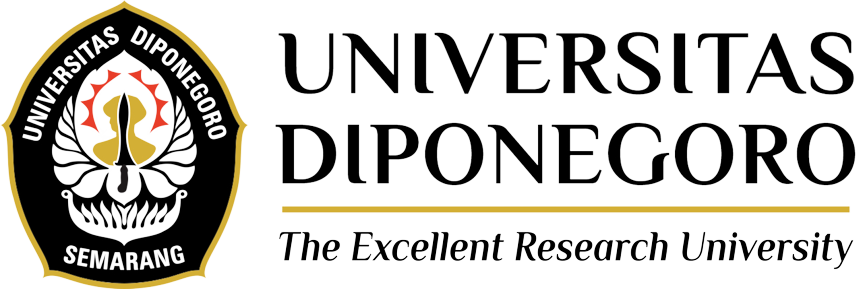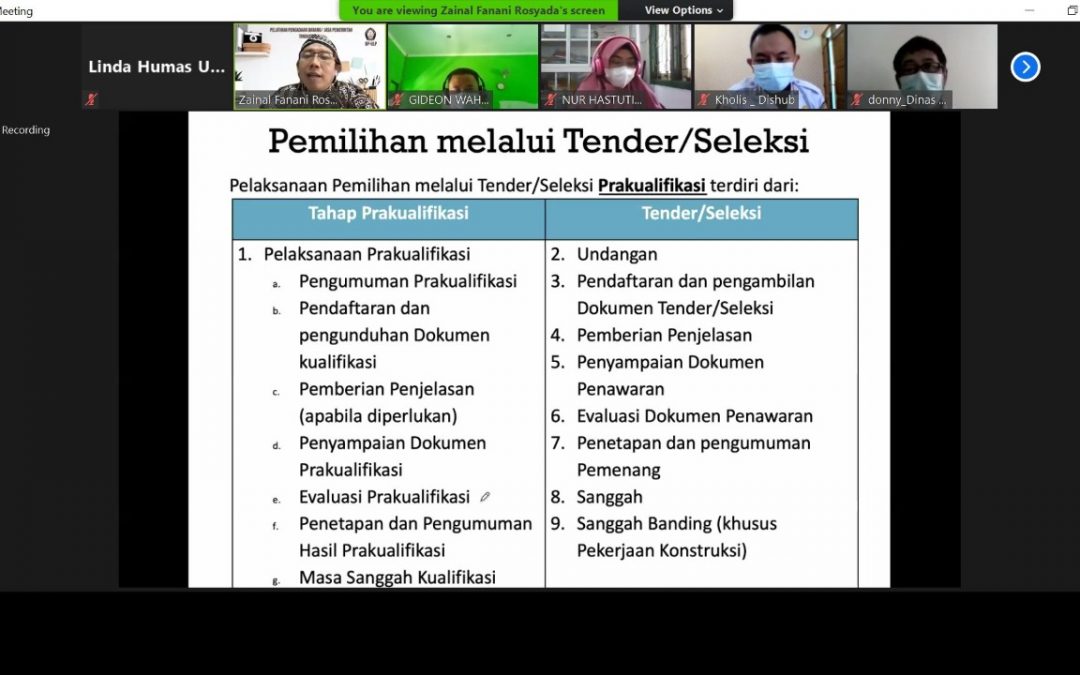Procurement Service Unit Management Agency (Badan Pengelola Unit Layanan Pengadaan / BP-ULP) of Diponegoro University held Basic Level Goods/Services Procurement Training with online learning participants in collaboration with Agency for Personnel and Human Resources Development (Badan Kepegawaian dan pengembangan Sumber Daya Manusia / BKPSDM) of Sragen Regency, on Wednesday (21/4).
Goods/services procurement must be regulated so that the procurement process can run effectively and be accountable, and also to assist the government in increasing economic growth, equitable development and the impact of society in development. In order to rule the implementation of goods/services procurement so that it will not violate the law, the government issues special regulations as a basis or guide in its implementation.
Zainal Fanani Rosyada, S.T., M.T., as the resource person said that in the implementation of contract there are things that must be considered, including determination of Letter of Appointment of Goods/Services Providers, Contract Signing, Advance Payment, Payment of Work Performance, Contract Changes, Price Adjustments, Contract Termination, Handover of Work Results and / or Handling of Force Majeure.
“In terms of agreement, Commitment Maker Officer is prohibited from making an agreement or signing a contract with the provider, in the event that there is no budget available for activities funded by State Budget or Regional Budget,” he explained.
Regarding emergencies, he explained that an emergency is a condition determined by the Government for a certain period of time based on recommendation of Agency assigned the task of overcoming disasters. “Emergencies include natural disasters, non-natural disasters or social disasters, implementation of search and rescue operations, damage to infrastructure that can disrupt public services, and humanitarian assistance to other countries affected by disasters” he said. (Linda-Public Relations)
Translated by: Titis (Public Relations)

